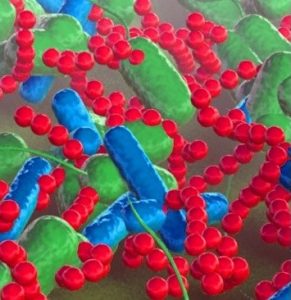EFFORTS OF UNIVERSITY OF TSUKUBAEfforts of University of Tsukuba

Development of microbe-based environmental control technology
Microbes abound in the earth’s ecosystems, and those ecosystems are protected by microbes’ relationships with animals, plants and other microbes. However, despite significant scientific advances, many of these microbes remain unexplained. The Microbiology Research Center for Sustainability is carrying out research and development to build and investigate new technology to explore how microbes interact with life around them, with which we hope to create innovations to protect the water and land and humanity’s food resources and health.
Specific work includes investigations conducted with technology such as proprietary microspectroscopy instruments to explore the interactions between enterobacteria and humans, between pathogen and plants and between microbes themselves at a molecular and cellular level. We are also conducting research on the role of microbes in ecosystems. Learning about the “conversations” between microbes and other life through this research will equip the scientific world with large volumes of fundamental knowledge that can be used to create innovations such as probiotics, prevention of crop disease and improvement of water treatment technology.

The complex combination of microbes that protect humans and the earth
Professor, Life and Environmental Sciences
Associate Professor, Life and Environmental Sciences
Associate Professor, Life and Environmental Sciences
Associate Professor, Life and Environmental Sciences
Associate Professor, Medicine




